Worms are one of my favourite wild animals, preferably when they are in my garden. They are almost as important as bees in the grand scheme of things. They root through our soils, devouring stuff that needs to be devoured, and converting it into the best soil improver, seed compost and general fertiliser anyone could wish for.
As you saw last week, I don’t have many worms in my garden at present. I also don’t think I have many in my compost heap. Not enough for a really healthy biome, anyway.
Wiggly Worms
There is an online business i the UK called Wiggly Wigglers. They started out sourcing and selling wormeries: dedicated stacked containers for worms to compost kitchen waste and turn it into humous and liquid. They diversified into bird seed, wild plants at one stage, and UK-grown flowers. The latter business has struck out as a sister brand, the Great British Florist (Grown not Flown) and I may have posted a photo or two of my flowers that I get monthly from them.
But worms and wormeries are still what Wiggly Wigglers do best. Last weekend I had a newsletter offer from them: their worms had enjoyed the weather so much they were now overstocked! So I got half a kilo of worms from them at a very low price. Ordered Sunday arrived Tuesday. These worms are very speedy!
Knowing I was dealing with live animals, I didn’t waste a moment in unpacking them and introducing them to their new home.
I realised later I should have taken a few minutes to sift out the earth they had arrived with – not added to help them on the journey, but produced as they travelled!
But I tipped them all into the compost heap, and covered them over a little to help them settle in quickly.
What will they eat?
By now they’ve probably dispersed to the far corners of the bin, munching on grass and hedge clippings, weeds, toilet roll insides, guinea pig waste, tea bags, a rare unwanted lettuce leaf or banana skin, and a few things I’ve added recently in composting experiments:
- ‘home compostable plastic’ wrappings – do they work?
- Bless your cotton socks (and wool ones). Single holey socks I thought deserved another use. How long do they take to reduce to some strands of elastic?
My felt childhood soft toys disappeared really quickly when I composted them at my old home last year. I don’t suppose my lovely new worms will take long converting these things to nice soil for my new veggie beds!
Wild about Worms is today’s #30DaysWild offering. If you’ve any composting questions, feel free to ask. I used to be a Norfolk Master Composter!

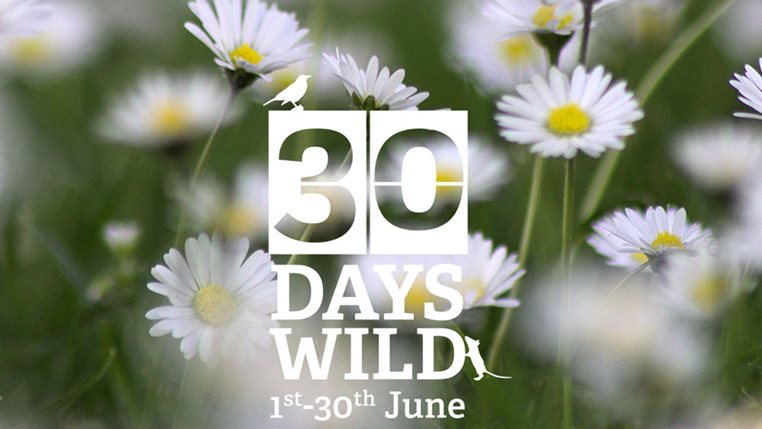
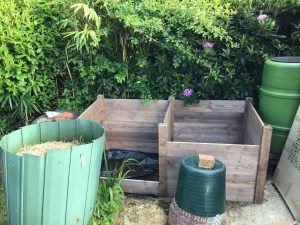
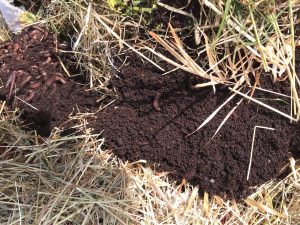
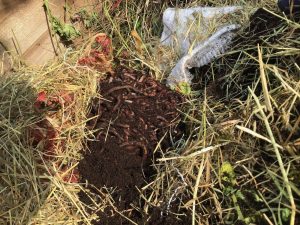
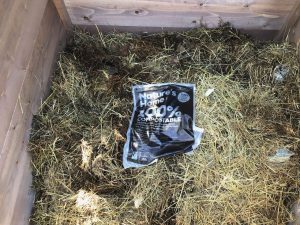
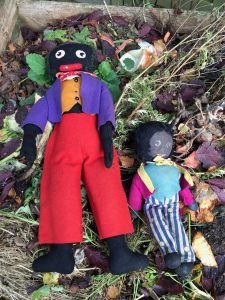

Can you get worms to put in the garden rather than the compost? My garden seems to have a scarcity of worms this year and I’ve hardly seen any when digging or turning over soil.
If you’ve had the same hot dry weather we’ve had, they may just have gone deeper, to moister soil. But have a look at the Wiggly pages via the links. The tiger and red worms are composters, I think it’s the dendra species that is the regular garden earthworm.